Q&A: How filmmaking, romance and the politics of 1968 collide in Michel Hazanavicius’s ‘Godard Mon Amour’
Few captured the cultural tumult and pace of change in the 1960s quite like French filmmaker Jean-Luc Godard. From his epochal debut “Breathless” through films such as “Masculine Feminine,” “Contempt” and “Weekend,” he explored how the political and social climate impacted dynamics between men and women.
With his new “Godard Mon Amour,” Michel Hazanavicius, an Oscar winner for “The Artist,” has adapted a memoir by Anne Wiazemsky, the actress who married Godard in 1967 after appearing in his “La Chinoise.” That film both celebrated and critiqued the student protest movements of the time, as the couple would in real life be swept up in the protests, conflicts and quest for liberation of May 1968 in Paris.
Hazanavicius depicts Godard at a moment of crisis and transition, as he takes inspiration from the politically charged times in an attempt to create a more radical and revolutionary filmmaking practice. Yet the film also seeks to humanize Godard the director by capturing the strain on his relationship with Wiazemsky. Louis Garrel as Godard and Stacy Martin as Wiazemsky embody Hazanavicius’ unpredictable mix of romantic drama, artistic turmoil and unlikely comedy.
The filmmaker sat down recently in Los Angeles to discuss his movie and the ongoing importance of the era.
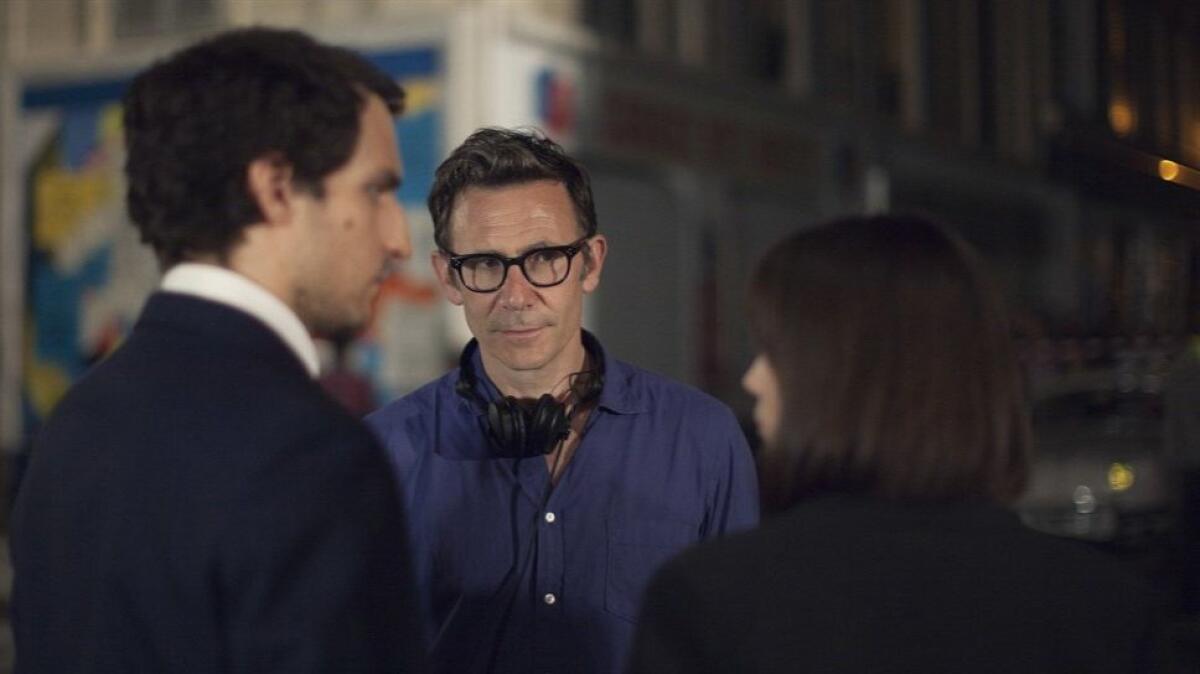
READ MORE: A look back at entertainment in 1968 »
Why do you think 1968 maintains such a grasp on the popular imagination? What to you is the importance of 1968?
I think it’s like the official social end of the postwar era. I would say it like this, this year, maybe because of the Vietnam War or something, the youth, the first postwar babies, they were like in their 20s or 18 and they really wanted some change in the way the world was ruled at this time. In France, for example, the president was Gen. De Gaulle. He was a hero from World War II and he was an old man; he was a general from the army and really, really old-fashioned. He was really disconnected to the reality of the youth. People were listening to the Beatles and the Rolling Stones and they were fans of Bridget Bardot and Jean-Luc Godard. And he was really disconnected with that population and they literally took to the streets to express that they were existing. But the strange thing is, it was the same all over the world.
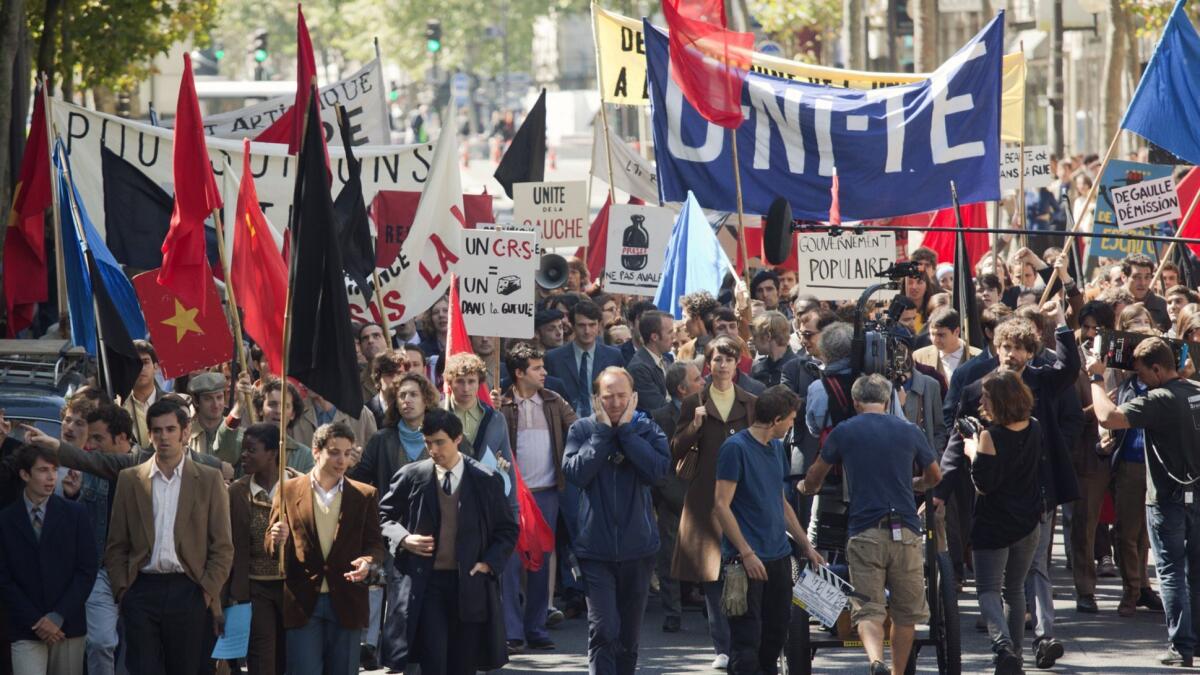
What was it about “One Year After,” Wiazemsky’s memoir, that struck you and made you want adapt it into a film?
It was a combination between the characters themselves, who they were, what happened to them, the story. There’s two books actually — one is like the rise of the love story and the other one is the fall, the ending of that love story. And I was more attracted by the crisis, the end of the love story. And also, because it was during May ’68, it was different layers of crisis. Jean-Luc Godard was almost 40 and I think he was in a kind of midlife crisis. This couple was in a crisis, his artistic life was in a crisis and Paris and France was in a huge crisis as well. So for a writer it’s very exciting, all these layers and levels of crisis.
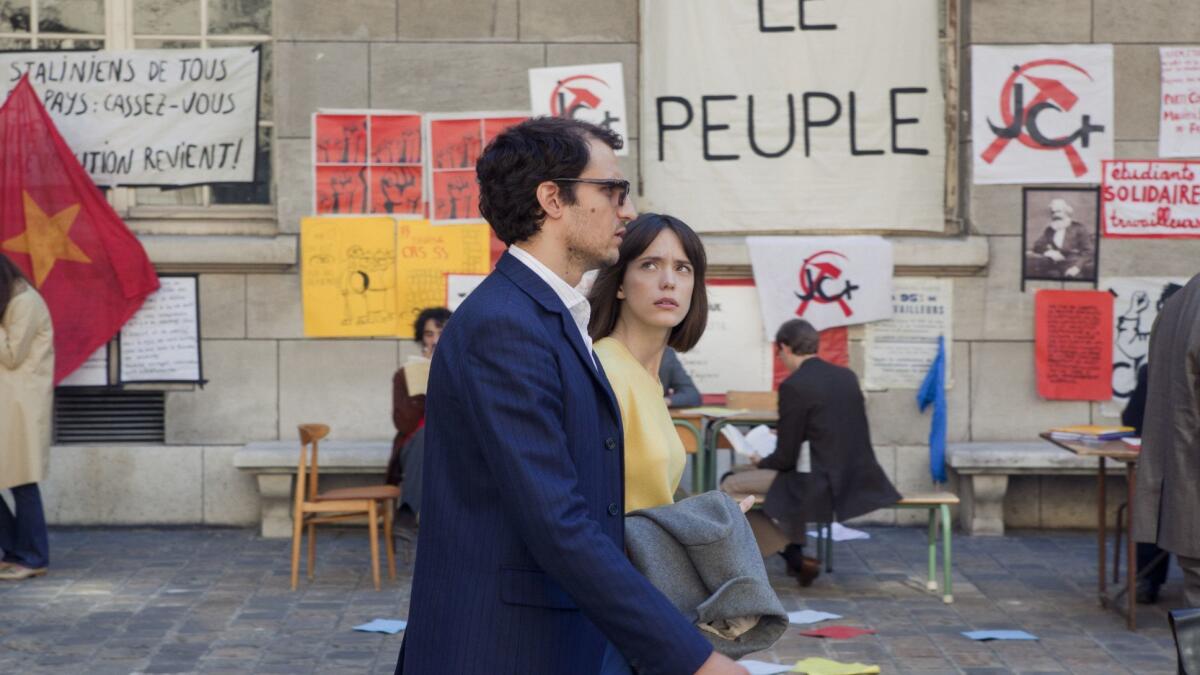
Was it a challenge just recreating the period? You restage some of the May 1968 protest riots in Paris and also have the challenge of restaging some of Godard’s own films, “La Chinoise” in particular. Was that difficult?
There is nothing easy when you make a movie. This was particularly difficult because I had 700 extras in the actual streets where things happened for real. The most difficult thing for me was trying to find the right balance between irony and respect, respect of the characters and respect of the stories, but also the distance and the comedy I wanted to bring into it. And the attraction and aversion for the character. All the movie is about this. It’s not a statue erected to the great Jean-Luc Godard, not at all, but it’s also not a trial, it’s not a judgment. So I had to find that right balance between positive parts and negative parts, and that was the most challenging. The rest was more traditional difficulties.
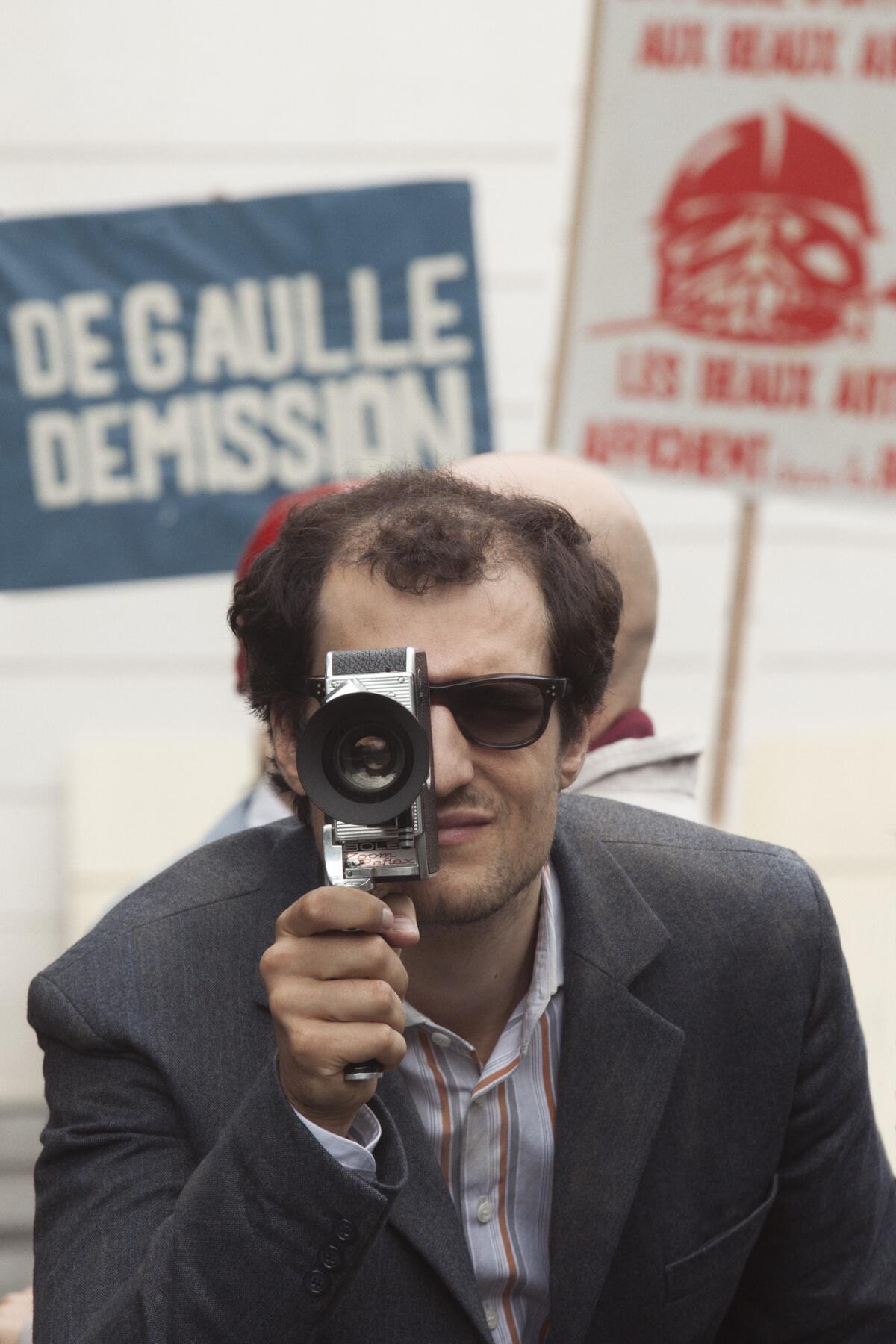
Anne Wiazemsky was at the film’s premiere last year at Cannes, but died in October of cancer. What does it mean to you that she was able to see the movie?
She was one of the first people to see the movie. It was before the end of the cutting, not the first cut but maybe I had two weeks left. If something was really wrong I could fix it. And she saw the movie and she was really moved, deeply moved by the movie. She really loved it, and she really recognized Godard. And so it was a relief for me.
I knew in a way I betrayed the book, but you have to when you make a movie. A movie is not a book, you don’t copy the book, you have to find your own way to tell the same story or to find the same level. I put in a lot of funny things, jokes in the movie, and she liked it. She didn’t ask for any kind of change or anything. And yes, it was very intense when she went to Cannes. I didn’t know it but she knew she was sick and she passed like a few months later. For her, because she was an actress, to come back to the Cannes festival with that movie telling her own story based on a book she had written, it was really moving. I’m very happy having shared this with her.
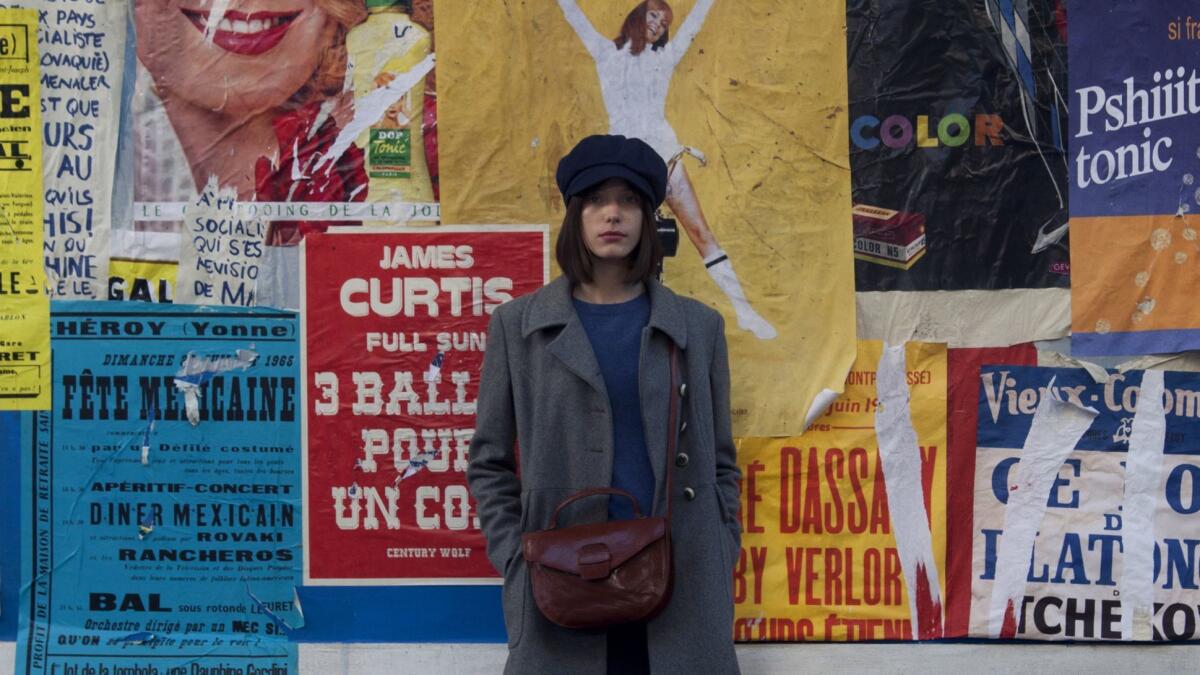
You’ve been asked many times if you’ve had any kind of response from Jean-Luc Godard himself and it’s funny that his unresponsiveness seemed like the ultimate Godard-ian statement. But now maybe his statement is the fact that one year after your film was at Cannes in the competition, this year he has a new film at Cannes in competition.
Maybe. You can love him or hate him or whatever, or you don’t care, like many people, but he’s a free man. And that’s something you only can respect.
And even in my movie, even if I make fun of him, I try to portray him as a hero as well. Because what he does is heroic, in a way. He decided to do something against everything and against everyone and he does what he decided to do, which is what heroes do.
Hear the full conversation with Michel Hazanavicius on the L.A. Times’ entertainment podcast, “The Reel,” at applepodcasts.com/thereel or on your listening platform of choice.
More on the cultural shifts of 1968:
SIGN UP for the free Indie Focus movies newsletter »
Follow on Twitter: @IndieFocus
Only good movies
Get the Indie Focus newsletter, Mark Olsen's weekly guide to the world of cinema.
You may occasionally receive promotional content from the Los Angeles Times.








